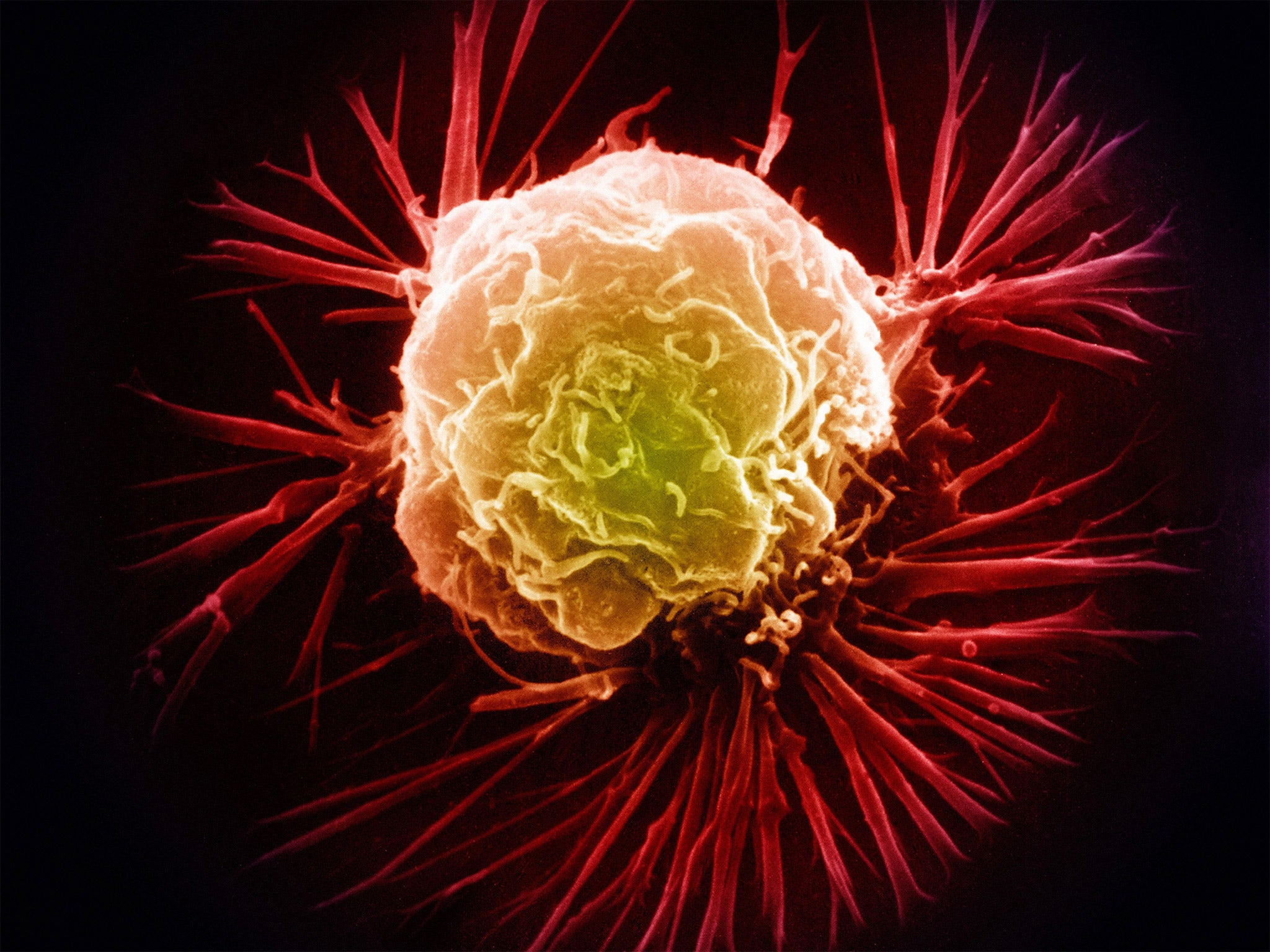'Game-changing' new way to fight cancer discovered
A 'completely unknown' protein was found while mice with genetic mutations were being screened

Your support helps us to tell the story
From reproductive rights to climate change to Big Tech, The Independent is on the ground when the story is developing. Whether it's investigating the financials of Elon Musk's pro-Trump PAC or producing our latest documentary, 'The A Word', which shines a light on the American women fighting for reproductive rights, we know how important it is to parse out the facts from the messaging.
At such a critical moment in US history, we need reporters on the ground. Your donation allows us to keep sending journalists to speak to both sides of the story.
The Independent is trusted by Americans across the entire political spectrum. And unlike many other quality news outlets, we choose not to lock Americans out of our reporting and analysis with paywalls. We believe quality journalism should be available to everyone, paid for by those who can afford it.
Your support makes all the difference.Researchers believe they have found a “game-changing” way to boost the body’s immune system, potentially enabling it to fight off any kind of cancer or virus.
A “completely unknown” protein was discovered by scientists at Imperial College London and they hope to begin trialling a new genetic therapy on humans in three years, The Daily Telegraph reported.
The immune system tries to fight cancer with T cells but usually loses the battle. However the protein, called named lymphocyte expansion molecule (LEM), enables a much larger number of T cells to be produced – enough to overwhelm cancer or other kinds of diseases.
Professor Philip Ashton-Rickardt, of Imperial, who led the study published in the journal Science, said: “This is exciting because we have found a completely different way to use the immune system to fight cancer.
“It could be a game-changer for treating a number of different cancers and viruses.
“This is a completely unknown protein. Nobody had ever seen it before or was even aware that it existed. It looks and acts like no other protein.”
The protein was found while mice with genetic mutations were being screened. Mice with a particular mutation produced 10 times the number of T cells and this was linked to the protein, which is also present in humans.
Dr Mike Turner, head of infection and immunobiology at The Wellcome Trust, said the discovery was “fascinating”.
“Further investigation in animal models is needed before human trials can commence, but there is potential for a new type of treatment that capitalises on the immune system’s innate ability to detect and kill abnormal cells,” he said.
And Dr Alan Worsley, senior science information officer at Cancer Research UK, said: “This exciting work in mice is still at an early stage and only looked at one type of cancer.
“Cancer often finds a way to suppress the immune system, but drugs that overcome this and allow immune cells to target cancer show great promise. Research into the biology of the immune system could help develop more effective treatments by increasing the number of cancer-killing immune cells.
“The researchers now need to figure out how to develop drugs that target this molecule, and whether doing so would be safe and effective in cancer patients.”
Join our commenting forum
Join thought-provoking conversations, follow other Independent readers and see their replies
Comments